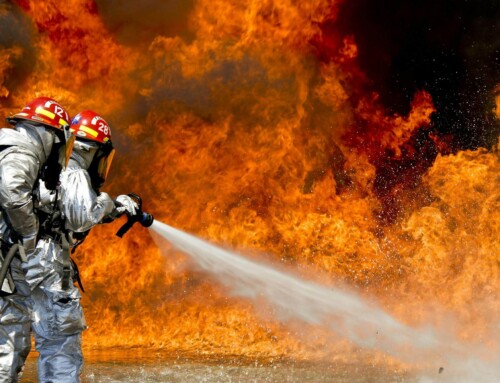Seesawing stock markets, careening oil prices, and a growing undercurrent of apprehensiveness in virtually every facet of our lives. Welcome to the world of COVID-19, more commonly known as the coronavirus. While we are facing unknow challenges, there is an underlying hope that important lessons can be gleamed from the crisis.
Leaders of organizations should take the time to reflect on the skill sets and profiles of their leadership teams. Your management team consists of people who you trust to deliver results; this is an opportunity to identify those who have earned their seat at the post-COVID table.
Here is the R-R-R-R checklist of desirable crisis leadership attributes.
Responsiveness
International governments and health agencies were unprepared for an infection of this magnitude and ferocity. China, where both COVID-19 and SARS (bird flu) originated, botched quarantine and utterly bungled containment both times. Here are some questions that a strong leader would have asked:
- Did anyone on your team proactively implement/ask to implement precautionary measures like work-from-home and voluntary leave?
- Did anyone suggest company-wide emails, messages and posters giving employees a list of recommended Dos and Don’ts?
Crises require a quick – but accurate – assessment of the dangers, followed by the formulation of a competent plan of action. While we are seeing measures being widely implemented now, those ahead of the curve proved themselves responsive leaders.
Realism
When the first reports of a possible pandemic filtered out of China, most people could not have imagined its virtually unrestrained spread. Particularly astute leaders, though, would have had inklings of anxiety, perhaps based on their experience with SARS. They may have considered the following:
- Was there a manager who discussed possible scenarios, drawing parallels with the course taken during the SARS outbreak?
- Did anyone express concerns about the impact of the virus on business operations, whether or not you are directly exposed to the Chinese workforce and its products?
The ability to make these realistic insights and draw parallels between situations are traits of a strong leader.
Reliability
As worldwide infections grew exponentially, so did the panic. Accounts of empty shop shelves, even in unaffected communities, are making the news today. When employees are preoccupied with concerns about the welfare of their families, workplace productivity may decrease. This, in turn, will harm business and profitability. The antidote is a strong, resilient and visible face of leadership.
Visibility here does not refer simply to presence but rather to a consistent, composed accessibility.
- How many managers put additional hours in of their own accord?
- Were they able to alleviate employee concerns about personal safety and business stability?
- Were they able to convey this effectively in a calm, confidence-inspiring demeanor?
Repositioning in the Aftermath
The coronavirus is leaving a tragic death toll in its wake, one that continues to grow. But, as they say, this, too, shall pass.
Amidst the firestorm of loss and confusion, recognize the contributions of managers whose resolve and foresight circumvented even more catastrophic outcomes. Some on whom you rely may have underperformed while others may have shone. The latter’s particular skill sets will be as instrumental in your future success as they have been during this outbreak.






